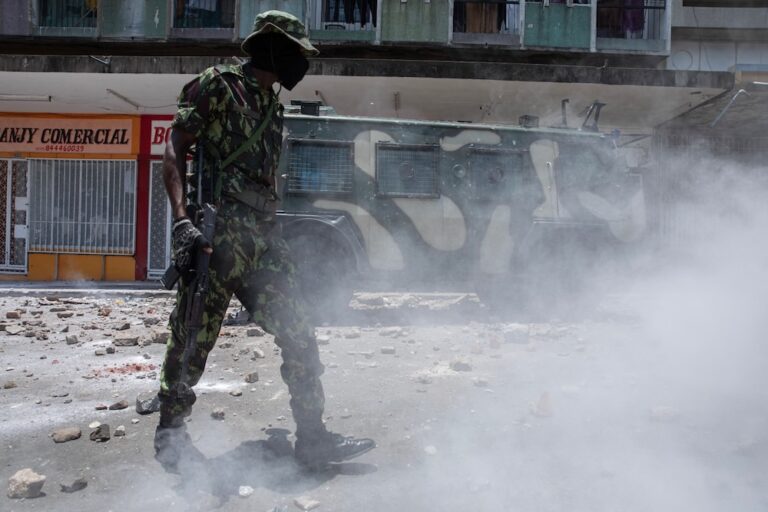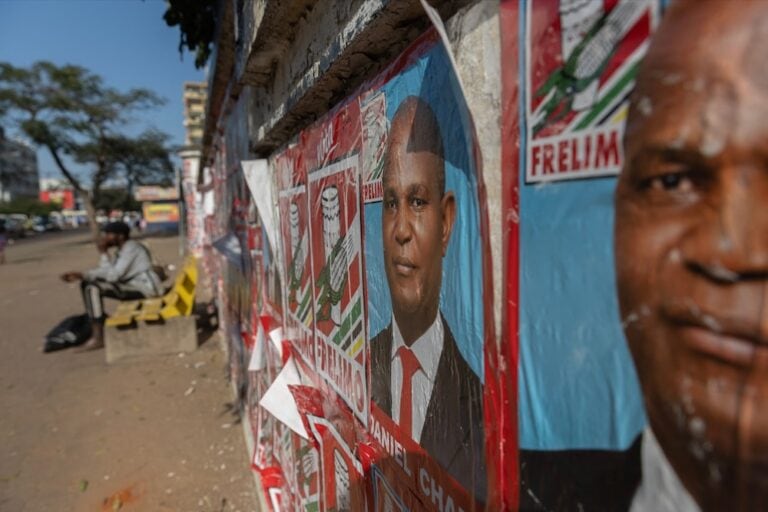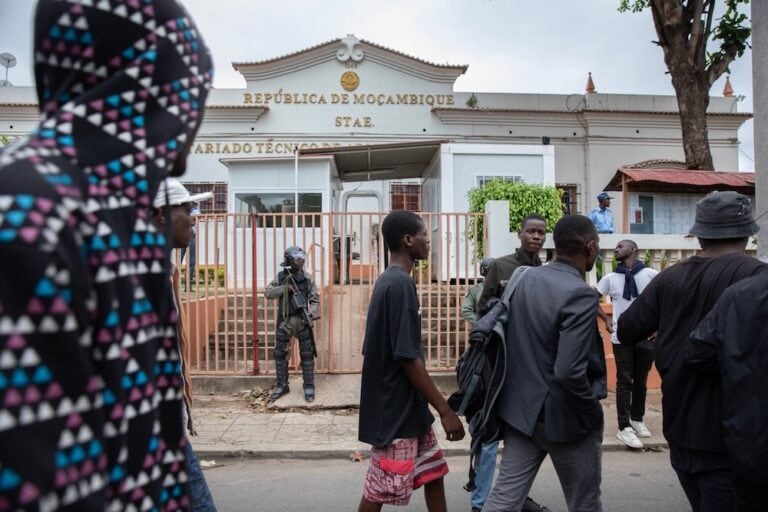(MISA/IFEX) – MISA-Mozambique and the Mozambique journalists’ union’s (SNJ) Niassa branch have condemned the 15 May 2004 detention for 10 hours of reporter Fabiao Mondlane. Mondlane, who works for the independent Niassa newspaper “Faisca” and is also a correspondent for the Maputo weekly “Demos”, was arrested in the provincial capital, Lichinga, on orders of the […]
(MISA/IFEX) – MISA-Mozambique and the Mozambique journalists’ union’s (SNJ) Niassa branch have condemned the 15 May 2004 detention for 10 hours of reporter Fabiao Mondlane.
Mondlane, who works for the independent Niassa newspaper “Faisca” and is also a correspondent for the Maputo weekly “Demos”, was arrested in the provincial capital, Lichinga, on orders of the provincial chief attorney, Domingos Telha. Telha claimed that Mondlane defamed him in a 13 May “Faisca” article on corruption in the provincial attorney’s office.
However, the individual who made the corruption allegation was Alice Mabota, chairperson of the Mozambican Human Rights League (LDH), who was on a visit to Niassa. “Faisca” quoted her as saying at a press conference that there was “unprecedented corruption” in Telha’s office and that Attorney General Joaquim Madeira should take “urgent measures” to bring the situation to an end.
Mabota said she intended to tell Madeira what she had seen and heard in Niassa. She confirmed that the corruption consisted of illegal billing by officials in the provincial attorney’s office and that Telha himself was involved.
“These are proven cases of the involvement of state officials in schemes of easy enrichment,” she declared.
When the article on Mabota’s claims and an accompanying editorial were published, Telha signed a warrant for Mondlane’s immediate arrest on libel charges.
The SNJ and MISA regard the arrest as a violation of Mozambique’s press law. They believe that Mondlane was detained solely because he complied with his duty as a journalist to inform the public about a matter of public interest. Mondlane later said he had been thrown into a dank and foul-smelling cell, alongside people accused of serious crimes, such as armed robbery and mutilation. Ten hours after being detained, he was released by the director of the Lichinga prison, who told him he had received orders to set him free because the arrest was illegal. Mondlane was even given a ride home in a police car.
When interviewed by the pro-Resistencia Nacional Mocambicana (RENAMO) news bulletin “Imparcial”, Mondlane accused Telha of “abuse of power.” He noted that several other media organisations had reported Mabota’s statements, including Radio Mozambique and Mozambican Television (TVM). “Why didn’t they arrest the other journalists who published what Mabota said?” he asked.
Mondlane said the official who served him with the arrest warrant told him he was being jailed because he had written “filth” against the provincial attorney.
The Lichinga police have also been questioning a local photographer, Feliciano Wiriamo, who published a photograph of a group of criminals attacking a woman. According to “Faisca” editor Santos Mante, the police wanted to know how Wiriamo had taken the photograph without being involved in the crime. Mante said he regarded such offensive questions as an intimidation tactic and a denial of media freedom.


